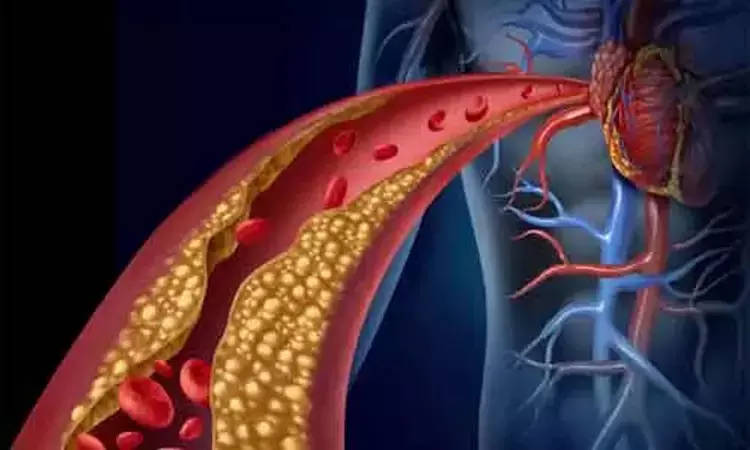- Home
- Medical news & Guidelines
- Anesthesiology
- Cardiology and CTVS
- Critical Care
- Dentistry
- Dermatology
- Diabetes and Endocrinology
- ENT
- Gastroenterology
- Medicine
- Nephrology
- Neurology
- Obstretics-Gynaecology
- Oncology
- Ophthalmology
- Orthopaedics
- Pediatrics-Neonatology
- Psychiatry
- Pulmonology
- Radiology
- Surgery
- Urology
- Laboratory Medicine
- Diet
- Nursing
- Paramedical
- Physiotherapy
- Health news
- Fact Check
- Bone Health Fact Check
- Brain Health Fact Check
- Cancer Related Fact Check
- Child Care Fact Check
- Dental and oral health fact check
- Diabetes and metabolic health fact check
- Diet and Nutrition Fact Check
- Eye and ENT Care Fact Check
- Fitness fact check
- Gut health fact check
- Heart health fact check
- Kidney health fact check
- Medical education fact check
- Men's health fact check
- Respiratory fact check
- Skin and hair care fact check
- Vaccine and Immunization fact check
- Women's health fact check
- AYUSH
- State News
- Andaman and Nicobar Islands
- Andhra Pradesh
- Arunachal Pradesh
- Assam
- Bihar
- Chandigarh
- Chattisgarh
- Dadra and Nagar Haveli
- Daman and Diu
- Delhi
- Goa
- Gujarat
- Haryana
- Himachal Pradesh
- Jammu & Kashmir
- Jharkhand
- Karnataka
- Kerala
- Ladakh
- Lakshadweep
- Madhya Pradesh
- Maharashtra
- Manipur
- Meghalaya
- Mizoram
- Nagaland
- Odisha
- Puducherry
- Punjab
- Rajasthan
- Sikkim
- Tamil Nadu
- Telangana
- Tripura
- Uttar Pradesh
- Uttrakhand
- West Bengal
- Medical Education
- Industry
PCSK9 inhibitor Evinacumab may significantly lower LDL cholesterol in FH: NEJM

Delhi: Evinacumab significantly lowers LDL cholesterol levels in patients with homozygous familial hypercholesterolemia receiving maximum doses of lipid-lowering therapy, according to a recent study in the New England Journal of Medicine.
Homozygous familial hypercholesterolemia patients have markedly elevated levels of low-density lipoprotein (LDL) cholesterol causing premature cardiovascular disease. This disorder is associated with genetic variants resulting in either impaired (non-null) or virtually absent (null–null) LDL-receptor activity. Loss-of-function variants in the gene encoding angiopoietin-like 3 (ANGPTL3) are associated with hypolipidemia and protection against atherosclerotic cardiovascular disease.
Evinacumab is a monoclonal antibody against ANGPTL3 that has shown potential benefits in patients with homozygous familial hypercholesterolemia. It is PCSK9 inhibitor that acts by inhibiting PCSK9 protein.
Frederick J. Raal, University of the Witwatersrand, Johannesburg, and colleagues conducted a double-blind, placebo-controlled, phase 3 trial. In the trial, 65 patients with homozygous familial hypercholesterolemia patients who were receiving stable lipid-lowering therapy, were randomly assigned in the ratio 2:1 to receive an intravenous infusion of evinacumab (at a dose of 15 mg per kilogram of body weight) every 4 weeks or placebo.
The primary outcome was the percent change from baseline in the LDL cholesterol level at week 24.
Key findings of the study include:
- The mean baseline LDL cholesterol level in the two groups was 255.1 mg per deciliter, despite the receipt of maximum doses of background lipid-lowering therapy.
- At week 24, patients in the evinacumab group had a relative reduction from baseline in the LDL cholesterol level of 47.1%, as compared with an increase of 1.9% in the placebo group, for a between-group least-squares mean difference of –49.0 percentage points; the between-group least-squares mean absolute difference in the LDL cholesterol level was –132.1 mg per deciliter.
- The LDL cholesterol level was lower in the evinacumab group than in the placebo group in patients with null–null variants (–43.4% vs. +16.2%) and in those with non-null variants (–49.1% vs. –3.8%).
- Adverse events were similar in the two groups.
"In patients with homozygous familial hypercholesterolemia receiving maximum doses of lipid-lowering therapy, the reduction from baseline in the LDL cholesterol level in the evinacumab group, as compared with the small increase in the placebo group, resulted in a between-group difference of 49.0 percentage points at 24 week," concluded the authors.
The study, "Evinacumab for Homozygous Familial Hypercholesterolemia," is published in the journal NEJM.
Dr Kamal Kant Kohli-MBBS, DTCD- a chest specialist with more than 30 years of practice and a flair for writing clinical articles, Dr Kamal Kant Kohli joined Medical Dialogues as a Chief Editor of Medical News. Besides writing articles, as an editor, he proofreads and verifies all the medical content published on Medical Dialogues including those coming from journals, studies,medical conferences,guidelines etc. Email: drkohli@medicaldialogues.in. Contact no. 011-43720751


